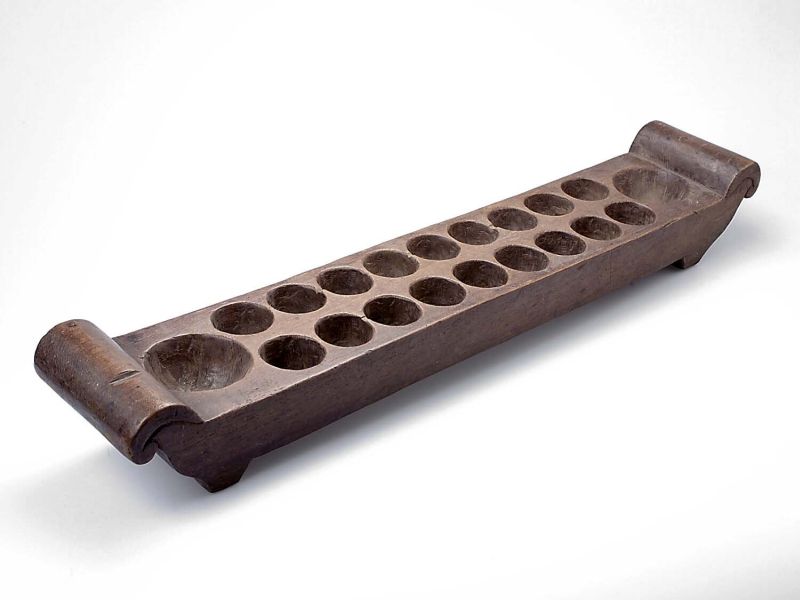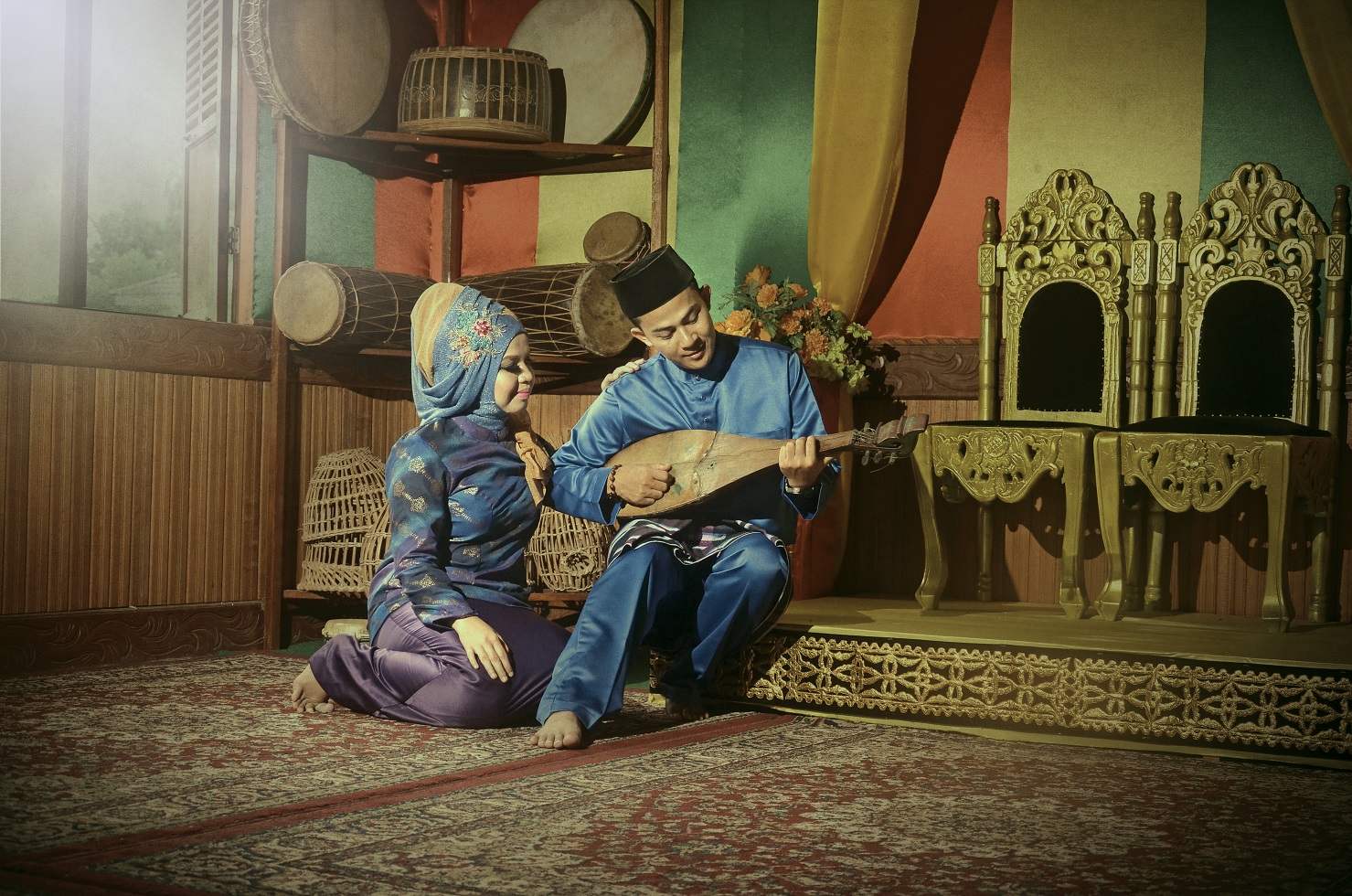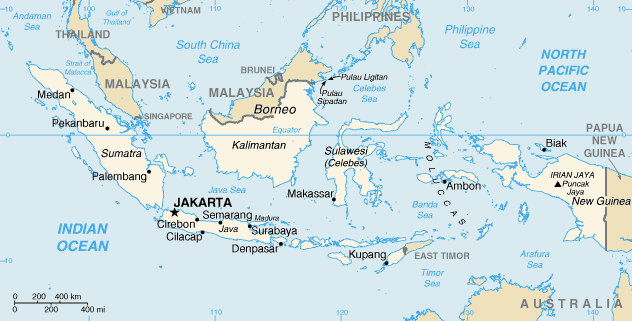|
Mancala
The mancala games are a family of two-player turn-based strategy board games played with small stones, beans, or seeds and rows of holes or pits in the earth, a board or other playing surface. The objective is usually to capture all or some set of the opponent's pieces. Versions of the game date back past the 3rd century and evidence suggests the game existed in Ancient Egypt. It is among the oldest known games to still be widely played today. Names and variants The name is a classification or type of game, rather than any specific game. Some of the most popular mancala games (concerning distribution area, the numbers of players and tournaments, and publications) are: * Ayoayo, played by the Yoruba people in Nigeria; similar to Oware * Alemungula or gebeta (ገበጣ)– played in Sudan and Ethiopia. * Ali Guli Mane or Pallanguzhi – played in Southern India. * Bao la Kiswahili – played in most of East Africa including Kenya, Tanzania, Comoros, Malawi, as we ... [...More Info...] [...Related Items...] OR: [Wikipedia] [Google] [Baidu] |
List Of Mancala Games
Games in the mancala family include: Popular games The most widely played games are probably: * Bao is a complex strategy game of Kenya and Zanzibar, played on a 4×8 board. *Kalah is the ruleset usually included with commercially available boards; however, the game is heavily biased towards the first player, and it is often considered a children's game. The board is 2×6 with stores. The Pie rule can be used to balance the first-player's advantage. *Oware, the national game of Ghana, is also known by Warri,Henry R. Muller, ''Warri: A West African Game of Skill'', The Journal of American Folklore. Vol. 43, No. 169. pp. 313-316. Ayo (Yoruba Name. Nigeria), Awele, Awari, Ouril, and other names. It has relatively simple rules but considerable strategic depth. The board is 2×6 (not counting optional stores). *Omweso (also known as ''coro'') is a strategic game of Uganda, played on a 4×8 board. *Pallanguzhi is played in Tamil nadu, Southern India with 2 x 7 stores. Two varieties o ... [...More Info...] [...Related Items...] OR: [Wikipedia] [Google] [Baidu] |
Oware
Oware is an abstract strategy game among the mancala family of board games (pit and pebble games) played worldwide with slight variations as to the layout of the game, number of players and strategy of play. Its origin is uncertain but it is widely believed to be of Ashanti origin. Played in the Bono Region, Bono East Region, Ahafo Region, Central Region, Western Region, Eastern Region, Ashanti Region of Ghana and throughout the Caribbean, oware and its variants have many names - ayò, ayoayo (Yoruba), awalé (Ivory Coast, Benin), wari (Mali), ouri, ouril or uril (Cape Verde), warri (Caribbean) Pallanguzhi (India) wali (Dagbani), adji ( Ewe), nchọ/ókwè (Igbo), ise ( Edo), awale ( Ga) (meaning "spoons" in English). A common name in English is awari but one of the earliest Western scholars to study the game, Robert Sutherland Rattray, used the name ''wari''. Rules Following are the rules for the ''abapa'' variation, considered to be the most appropriate for serious, adult p ... [...More Info...] [...Related Items...] OR: [Wikipedia] [Google] [Baidu] |
Bao (game)
Bao is a traditional mancala board game played in most of East Africa including Kenya, Rwanda Tanzania, Comoros, Malawi, as well as some areas of DR Congo and Burundi. It is most popular among the Swahili people of Tanzania and Kenya; the name itself "Bao" is the Swahili word for "board" or "board game". In Tanzania, and especially Zanzibar, a "bao master" (called ''bingwa'', "master"; but also ''fundi'', "artist") is held in high respect. In Malawi, a close variant of the game is known as Bawo, which is the Yao equivalent of the Swahili name. Bao is well known to be a prominent mancala in terms of complexity and strategical depth,De Vogt (1995) and it has raised interest in scholars of several disciplines, including game theory, complexity theory, and psychology. Official tournaments are held in Tanzania, Zanzibar, Lamu (Kenya), and Malawi, and both mainland Tanzania and Zanzibar have their Bao societies, such as the Chama cha Bao founded in 1966. In Zanzibar and Tanzania the ... [...More Info...] [...Related Items...] OR: [Wikipedia] [Google] [Baidu] |
Southeast Asian Mancala
Southeast Asian mancalas are a subtype of mancala games predominantly found in Southeast Asia. They are known as congklak ( VOS Spelling: tjongklak), congkak, congka, and dakon in Indonesia, congkak in Malaysia and Brunei, and sungkâ in the Philippines. They differ from other mancala games in that the player's store is included in the placing of the seeds. Like other mancalas, they vary widely in terms of the rules and number of holes used. Names Southeast Asian mancalas are generally known by variations of similar cognates which are likely onomatopoeiac. The names have also come to mean the cowrie shells, predominantly used as the seeds of the game. These names include ( VOS Spelling: ''tjongklak''; also spelled as ''tsjongklak'' in Dutch sources), , , and in Indonesia, ''congkak'' in Malaysia, Brunei, and Singapore, and ''sungkâ'' (also spelled ''chonca'' or ''chongca'' by Spanish sources) in the Philippines. Historical records show that similar games also existed ... [...More Info...] [...Related Items...] OR: [Wikipedia] [Google] [Baidu] |
Ayoayo
{{Short description, Traditional mancala played by the Yoruba people in Nigeria Ayoayo (Yoruba: ''Ayò Ọlọ́pọ́n'') is a traditional mancala played by the Yoruba people in Nigeria. It is very close to the Oware game that spread to the Americas with the atlantic slave trade. Among modern mancalas, which are most often derived from Warri, the Kalah is a notable one that has essentially the same rules as Ayoayo. There are games with identical rules also in other areas of Africa. One such game is the Endodoi, played by the Maasai people of Kenya and Tanzania. Rules The Ayoayo board is composed of two rows of six holes each, and 48 seeds are used; at the beginning, 4 seeds are placed in each hole. These are exactly the same equipment and setup as those of Warri The city of Warri is an oil hub within South-South Nigeria and houses an annex of the Delta State Government House. Warri City is one of the major hubs of the petroleum industry in Nigeria. Warri and her twin cit ... [...More Info...] [...Related Items...] OR: [Wikipedia] [Google] [Baidu] |
Pallanguzhi
Pallanguli, or Pallankuli (, , , , ), is a traditional ancient mancala game played in South India, especially Tamil Nadu and Kerala. This game was later introduced to Karnataka and Andhra Pradesh in India, as well as Sri Lanka and Malaysia. The game is played by two players, with a wooden board that has fourteen pits in all (hence, it is also called fourteen pits, or ''pathinālam kuḻi''. There have been several variations in the layout of the pits, one among them being seven pits on each player's side. The pits contain cowry shells, seeds or small pebbles used as counters. There are several variations of the game depending on the number of shells each player starts with. Gameplay Overview Pallankuli is played on a rectangular board with 2 rows and 7 columns. There are a total of 14 cups (kuḻi in Tamil) and 146 counters. For the counters in the game, seeds, shells, small stones are all common for use. As the game proceeds, each player distributes the shells over all the pit ... [...More Info...] [...Related Items...] OR: [Wikipedia] [Google] [Baidu] |
Board Game
Board games are tabletop games that typically use . These pieces are moved or placed on a pre-marked board (playing surface) and often include elements of table, card, role-playing, and miniatures games as well. Many board games feature a competition between two or more players. To show a few examples: in checkers (British English name 'draughts'), a player wins by capturing all opposing pieces, while Eurogames often end with a calculation of final scores. '' Pandemic'' is a cooperative game where players all win or lose as a team, and peg solitaire is a puzzle for one person. There are many varieties of board games. Their representation of real-life situations can range from having no inherent theme, such as checkers, to having a specific theme and narrative, such as ''Cluedo''. Rules can range from the very simple, such as in snakes and ladders; to deeply complex, as in ''Advanced Squad Leader''. Play components now often include custom figures or shaped counters, and distin ... [...More Info...] [...Related Items...] OR: [Wikipedia] [Google] [Baidu] |
Indonesian People
Indonesians (Indonesian: ''orang Indonesia'') are citizens or people originally from Indonesia, regardless of their ethnic or religious background. There are more than 1,300 ethnicities in Indonesia, making it a multicultural archipelagic country with a diversity of languages, culture and religious beliefs. The population of Indonesia according to the 2020 national census was 270.2 million. 56% live on the island of Java, the world's most populous island. Around 95% of Indonesians are Native Indonesians (formerly grouped as "Pribumi"), with 40% Javanese and 15% Sundanese forming the majority, while the other 5% are Indonesians with ancestry from foreign origin, such as Arab Indonesians, Chinese Indonesians, Indian Indonesians, and Indos. Population As of 2020, Indonesians make up 3.4% of world total population and Indonesia is the fourth most populous country after China, India and the United States. Despite a fairly effective family planning program that has been in pl ... [...More Info...] [...Related Items...] OR: [Wikipedia] [Google] [Baidu] |
Malay Indonesians
Malay Indonesians (Malay/Indonesian: Orang Melayu Indonesia; Jawi: اورڠ ملايو ايندونيسيا) are ethnic Malays living throughout Indonesia. They are one of the indigenous peoples of the country. Indonesian, the national language of Indonesia, is a standardized form of Riau Malay.Sneddon 2003, ''The Indonesian Language: Its History and Role in Modern Society'', p. 69–70''Kamus Saku Bahasa Indonesia'', p. 272, PT Mizan Publika, There were numerous kingdoms associated with the Indonesian Malays along with other ethnicities in what is now Indonesia, mainly on the islands of Borneo and Sumatra. These included Srivijaya, the Melayu Kingdom, Dharmasraya, the Sultanate of Deli, the Sultanate of Siak Sri Indrapura, the Riau-Lingga Sultanate, the Sultanate of Bulungan, Pontianak Sultanate, and the Sultanate of Sambas. The 2010 census states that there are 8 million Malays in Indonesia, this number comes from the classification of Malays in East Sumatra and the coast o ... [...More Info...] [...Related Items...] OR: [Wikipedia] [Google] [Baidu] |
Indonesian Archipelago
The islands of Indonesia, also known as the Indonesian Archipelago ( id, Kepulauan Indonesia) or Nusantara, may refer either to the islands comprising the country of Indonesia or to the geographical groups which include its islands. History The exact number of islands comprising Indonesia varies among definitions and sources. According to the Law No 9/1996 on Maritime Territory of Indonesia, of 17,508 officially listed islands within the territory of the Republic of Indonesia. According to a geospatial survey conducted between 2007 and 2010 by the National Coordinating Agency for Survey and Mapping (Bakorsurtanal), Indonesia has 13,466 islands. However, according to earlier survey in 2002 by National Institute of Aeronautics and Space (LAPAN), the Indonesian archipelago has 18,307 islands, and according to the CIA ''World Factbook'', there are 17,508 islands. The discrepancy of the numbers of Indonesian islands was because that the earlier surveys include "tidal islands"; s ... [...More Info...] [...Related Items...] OR: [Wikipedia] [Google] [Baidu] |
Kenya
) , national_anthem = "Ee Mungu Nguvu Yetu"() , image_map = , map_caption = , image_map2 = , capital = Nairobi , coordinates = , largest_city = Nairobi , official_languages = Constitution (2009) Art. 7 ational, official and other languages"(1) The national language of the Republic is Swahili. (2) The official languages of the Republic are Swahili and English. (3) The State shall–-–- (a) promote and protect the diversity of language of the people of Kenya; and (b) promote the development and use of indigenous languages, Kenyan Sign language, Braille and other communication formats and technologies accessible to persons with disabilities." , languages_type = National language , languages = Swahili , ethnic_groups = , ethnic_groups_year = 2019 census , religion = , religion_year = 2019 census , demonym = ... [...More Info...] [...Related Items...] OR: [Wikipedia] [Google] [Baidu] |
Java
Java (; id, Jawa, ; jv, ꦗꦮ; su, ) is one of the Greater Sunda Islands in Indonesia. It is bordered by the Indian Ocean to the south and the Java Sea to the north. With a population of 151.6 million people, Java is the world's List of islands by population, most populous island, home to approximately 56% of the Demographics of Indonesia, Indonesian population. Indonesia's capital city, Jakarta, is on Java's northwestern coast. Many of the best known events in Indonesian history took place on Java. It was the centre of powerful Hindu-Buddhist empires, the Islamic sultanates, and the core of the colonial Dutch East Indies. Java was also the center of the History of Indonesia, Indonesian struggle for independence during the 1930s and 1940s. Java dominates Indonesia politically, economically and culturally. Four of Indonesia's eight UNESCO world heritage sites are located in Java: Ujung Kulon National Park, Borobudur Temple, Prambanan Temple, and Sangiran Early Man Site. ... [...More Info...] [...Related Items...] OR: [Wikipedia] [Google] [Baidu] |







